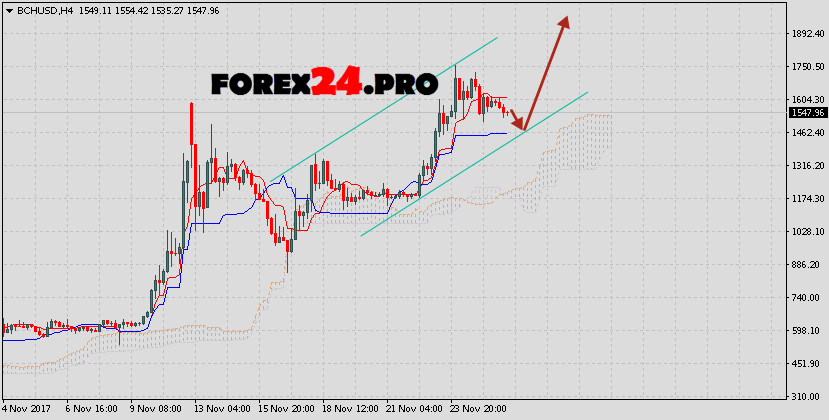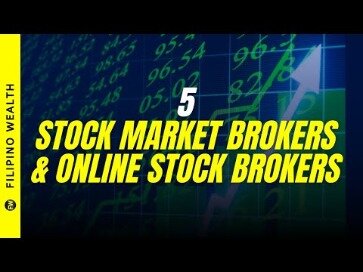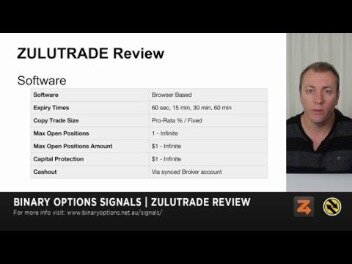+86-(0)768-6925905
Contents:


They should be in a position to weed out less important information and focus on essential information that will help them solve problems, answer questions, and generate ideas. Knowledge workers use analytical reasoning and relevant judgment to address customer service issues and new situations. In the late 1950s, Fritz Machlup used statistical information to examine work trends. In his research, he found that the share of manual workers in the labor force was decreasing, while the share of white-collar jobs was on the rise. He revealed that the number of knowledge workers was growing at a faster pace than that of manual jobs. Most people worked in traditional types of knowledge work professions such as those of teachers, ministers, and writers.
The results of the RCT have been submitted for publication elsewhere (Dobbins M, Robeson P, Ciliska D, Hanna S, Manske S, Cameron R, Mercer S, O’Mara L, DeCorby K., A randomized controlled trial evaluating the impact of knowledge translation and exchange strategies, submitted). In its broadest sense, knowledge brokerage is defined as the full suite of activities required to achieve evidence-based decision-making. Knowledge brokers are agents who support this agenda by facilitating interaction and engagement among researchers and end-users to enhance knowledge exchange, enable the use of scientific knowledge in decision-making processes, and strengthen research impact. However, an additional, and perhaps more robust tool for planning, implementing and evaluating knowledge brokering would be the application of a broader framework of knowledge transfer.
However, despite growing rhetoric regarding the potential benefits of knowledge brokers, the evidence in support of such claims is largely anecdotal. This is, in part, due to the lack of established methods to evaluate the effectiveness and efficiency of knowledge brokers, or the types of activities they undertake. To address this gap we used social network analysis to evaluate the effectiveness of a knowledge broker at connecting scientists and decision-makers over a 12-month period from when the broker began work. We also undertook a qualitative survey of scientists who worked in the same organisation as the knowledge broker to understand the extent to which the knowledge broker increased the impact of scientific research for decision-making purposes. In doing so, we identified three key benefits of using knowledge brokers to strengthen research impact at the science–policy interface. Knight says that many knowledge brokers first work in policy, training, or communications.
MiFID II ESG product governance amendments in force from 22 … – Dechert
MiFID II ESG product governance amendments in force from 22 ….
Posted: Tue, 13 Dec 2022 08:00:00 GMT [source]
One of the challenges relates to the hiring and retention of knowledge workers. With a looming shortage of knowledge workers, employers are forced to look for more effective ways of hiring the best talents and retaining them for a long period of time. Brokers make a decent salary, working through the day ensuring smooth transactions between their clients and the exchanges. Brokers can physically present trades but more often than not, brokers monitor trades from their computers and are only needed to intervene in the case of an exceptionally large or unique trade. The larger brokerage firms tend to carry an inventory of shares available to their customers for sale. They do this to help reduce costs from exchange fees, but also because it allows them to offer rapid access to popularly held stocks.
What skills are needed to broker? And what do they do…. ?
Knowledge brokers act as intermediaries or linkage agents, using interpersonal contacts to stimulate knowledge exchange, the development of new research and the application of solutions (CHSRF 2003; Thompson, Estabrooks et al. 2006). In this paper we use a range of research and ‘grey’ literature to explicate the concepts of knowledge brokering in more detail, provide examples of knowledge brokering in practice and examine its challenges. Search terms specifically related to knowledge brokering included ‘knowledge broker’, ‘intermediary’, ‘boundary spanner’ and ‘research translator’. In addition, searches on knowledge transfer and knowledge brokering have continued to be carried out in Cambridge Scientific Abstracts on a monthly basis. Up-to-date grey literature has been located via the Canadian Health Services Research Foundation e-bulletins and website and the KUUC e-watch bulletin on innovation in health services. As a result of these searches 21 papers which focused on describing or evaluating knowledge brokering interventions were the identified.
What Is a Broker? U.S. News – U.S News & World Report Money
What Is a Broker? U.S. News.
Posted: Thu, 18 Aug 2022 07:00:00 GMT [source]
I describe this paper as the most coherent because they offer a number of different cases where knowledge brokerage has employed and break them down into eight models of knowledge brokerage. This is the first bit that I referenced in the introductory paragraph, the part of the literature review that opened my eyes into how knowledge brokerage can be formalized, tracked, and implemented consistently in a large project-based, research-heavy organization. In the second post in this series I’ll dive deeper into the skills required for knowledge brokering and community management to explore the similarities and differences between the two roles. Meyer suggests that those with a background in pure science take a course in science journalism, science policy, economics, or management to broaden their viewpoints. Increasingly in Europe and North America, private companies offer knowledge brokering courses, Bielak says. In recent years, knowledge brokering activities have become more prominent and have converged toward a coherent profession.
However, although the aim of the Center is to form linkages, there is less emphasis on interaction or interpersonal processes. Two case-studies of knowledge brokering interventions (Kramer and Cole 2003; Kramer, Cole et al. 2004) used a combination of active dissemination and translation strategies to introduce health and safety research evidence to workplace managers. The process included summarising a body of research into a research message, producing plain-English summaries, slides and handouts, holding one-to-one meetings with key staff members and facilitating group meetings to discuss the research.
What Is a Broker?
Knowledge brokers are often found in organizations at the interface of research and policy, but they can also work at the boundaries between research and health care, research and business, research and the public, and even between different areas of research, Knight says. The conference Bridging the Gap Between Research, Policy and Practice, which Knight organized in London in 2011, was attended by knowledge brokers from many sectors, including government, charities, universities, consultancies, and learned societies, she says. The system has been reported as a successful way of reducing barriers to the use of research in practice, but there is no evidence of a full-scale evaluation. Sharing research evidence with decision makers and practitioners through passive dissemination has been widely acknowledged as ineffective (Grimshaw, Shirran et al. 2001; Kerner 2006; Grimshaw, Eccles et al 2006). In a trial of active vs. passive dissemination Amsallem et al used knowledge brokers to support the active dissemination of research evidence related to the treatment of cardiovascular diseases (Amsallem, Kasparian et al. 2007). Knowledge brokers held a series of meetings with clinicians during which they discussed the research evidence, its consequences for decision making and the gaps between evidence and practice before proposing local solutions.
- He described the way automation changed how knowledge-based positions evolved from manufacturing and agricultural jobs to more specialized occupations.
- The most common definition of a knowledge broker, are the individuals that act as links between the different groups and individuals in an organization that would not normally have a relationship with one another and that the core part of that role is the connecting of people.
- Lastly, the KB must be cognisant of many factors that may affect success, such as political and organizational changes, issues of confidentiality, competing interests and priorities, and turf issues within and between organizations.
- Research evidence competes with political agendas, electoral tactics, the political cycle, other stakeholders’ interests, technical, bureaucratic and political feasibility, costs and gripping stories.
- It’s essential to understand different ways of thinking and the different contexts in which information can be used.
Although business broker definition brokering has been proposed as a positive mechanism for transferring research evidence into policy and practice, we have identified several challenges which threaten its development. The greatest of these is the lack of evidence about how brokering works, the factors that influence it and its effectiveness. Using a clearly defined framework to plan and implement knowledge brokering interventions more consistently would be a significant step towards generating more evidence about the use of brokering in practice.
Knowledge broker explained
Results expressed in this report are those of the investigators and do not necessarily reflect the opinions or policies of the Ontario Ministry of Health and Long-Term Care. The authors report no funding-related or other conflicts of interest in this work. Assisting with the development of targeted resources (e.g., briefing notes for senior management and community partner bulletins). Lomas J. Using ‘linkage and exchange’ to move research into policy at a Canadian foundation. Jacobson N, Butterill D, Goering P. Consulting as a strategy for knowledge transfer.

In their report they propose a range of training activities including information literacy (e.g. searching and accessing web-based sources), how to get knowledge needs onto the scientific agenda and how to transform management issues into research questions. They also describe a project which is designed to provide access to research and other information in a single authoritative source in the form of a web-based database. Using knowledge brokers to link the users and producers of research is not limited to the public sector. In a conference paper Lind and Persborn describe a project to enhance interaction between a questioner and a knowledge resource . The LINK Center is a business which supports the creation of contacts between questioners and knowledge resources.
The growth of industrialization introduced new types of workers who used information to make a living. The Balance uses only high-quality sources, including peer-reviewed studies, to support the facts within our articles. Read our editorial process to learn more about how we fact-check and keep our content accurate, reliable, and trustworthy. Certain state insurance codes impose fiduciary duties on brokers that require them to act in the consumer’s best interest, and require them to disclose all sources of their compensation. For instance, California’s licensing requirements include at least 20 hours of pre-licensing study and 12 hours of California insurance code and ethics studies, plus continuing education after obtaining a license. For example, if you start a small business, you might use a broker to get business insurance, workers’ compensation insurance, and employee benefits plans.
Linkage and exchange
They are differentiated from other workers by their ability to solve complex problems or to develop new products or services in their fields of expertise. Since the term was coined, the number of knowledge workers has continued to grow as organizations move toward a collaborative workplace that gives more autonomy to their employees. Chris Cvitanovic is a Research Scientist and Knowledge Broker at CSIRO, Australia, specialising in knowledge exchange, stakeholder engagement and the governance of marine resources.

This enabled the Atlantic salmon fishing season to be extended by several weeks, bringing much-needed employment to some depressed regions of eastern Canada, Bielak explains. A project funded by the Climate & Development Knowledge Network is aiming to integrate sources of climate change information and tailor data into relevant information products. Access to reliable information and data, and the ability to share lessons and experience, are considered key ingredients in tackling climate change, particularly within developing countries. However, although numerous websites, portals and online platforms have been set up to provide such information, the ‘knowledge infrastructure’ within the climate and development sector is still weak. The project aims to fill some of the gaps and provide bridges between isolated initiatives.
The https://trading-market.org/ of the assessment tool was guided by Dobbins’ Framework and the Canadian Health Services Research Foundation Self Assessment Tool . The KB monitored participant status across all three levels and revisited plans of action with participants half way through and at the end of the one year intervention. Following ethics approval and recruitment, organizations were stratified into three strata according to size of population served, and randomly allocated to one of the three groups using a computer generated random numbers table by a statistician external to the study. The KB kept a daily journal in which all interactions were documented and reflections of the impact of these activities were noted.
A driving force has been “the increased focus on the ‘knowledge economy’ or ‘knowledge society’ and, more recently, ‘knowledge impact,’ ” Meyer says. This has promoted “the idea that knowledge should be used and useful, should boost the economy, be transformed into marketable products or patents, and have a cultural, social, or political value.” Martinez NR, Campbell D. Using knowledge brokering to promote evidence-based policy-making. The Netherlands Organisation for Health Research and Development used a knowledge brokering approach as a way of setting agendas and common goals for policymakers and researchers, clarifying information needs, commissioning syntheses of relevant research and packaging research syntheses (van Kammen, de Savigny et al. 2006).
Thesaurus
Each side also speaks its own, highly technical language (Choi, Pang et al. 2005). Given these difficulties, it is sometimes thought that neither researchers nor decision makers are best placed to drive the translation, transfer and implementation of health research evidence. To facilitate this knowledge exchange, knowledge brokers are required to build rapport with their target audiences and forge new connections across domains. The SNA provides important insights into the development of this network over time, demonstrating that over the 12-month period the network became more cohesive and dense, suggesting that the knowledge broker was successful at facilitating new relationships between scientists and decision-makers within their network.
An alternative is to focus more directly on the relationship between researchers and decision makers, in an approach which has become known as linkage and exchange. Until relatively recently, much of what we know about knowledge brokering came from the private sector, where brokering is seen as part of knowledge management – facilitating the spread of knowledge within and between organisations. The process of spreading knowledge is believed to stimulate innovation, leading to the development of new products .
- After the priorities, needs, and strengths for each participant and health department were identified, the KB informed participants of additional networks relevant and available to them.
- In the United Kingdom, “a major factor in the increase in both numbers and professionalization is the recent inclusion of ‘research impact’ as a measure to rank U.K. universities and determine funding, so investing in staff to promote research impact has become a priority,” Knight explains.
- In this paper we use a range of research and ‘grey’ literature to explicate the concepts of knowledge brokering in more detail, provide examples of knowledge brokering in practice and examine its challenges.
- Furthermore, only 46% of individuals were internal to the knowledge broker’s home institution, demonstrating the dominant end-user focus of these roles.
- A key attribute of the KBs is their skill in the interpretation and application of research.
We focus on all things knowledge translation and patient engagement , from a health research and healthcare perspective. However, these latter forms of autonomy require us to give up on transparency” (pp. 1). The shift from blue-collar jobs to knowledge-based positions presents new opportunities for people aiming to grow their talents and expand their creativity. Knowledge workers enjoy greater job mobility, and they can work in different time zones, at home, in airport lounges, and in coffee shops. Peter Drucker wrote extensively about knowledge workers, and his work is considered an accurate prediction of the future position of knowledge workers in society. He described the way automation changed how knowledge-based positions evolved from manufacturing and agricultural jobs to more specialized occupations.
Knowledge workers are also comprised of pharmacists, public accountants, engineers, architects, lawyers, physicians, scientists, financial analysts, and design thinkers. They may devise a comprehensive insurance plan that includes auto, home, and life insurance policies; or help business owners attain the wide-ranging coverages needed to protect their real estate and business property, while guarding against liability claims. Individuals and businesses with complex insurance requirements need the expertise of an insurance broker. Utilizing an insurance broker can have advantages beyond saving time, because a broker can help you decide how much coverage you need, and help you avoid the pitfalls of buying inadequate coverage. Brokers can also help educate you about insurance products, and they can explain the fine details of a policy’s terms and conditions, including important aspects an average consumer might overlook.
New York’s “Small Business” Commercial Financing Disclosure Law … – Holland & Knight
New York’s “Small Business” Commercial Financing Disclosure Law ….
Posted: Tue, 07 Mar 2023 08:00:00 GMT [source]
Grimshaw JM, Shirran L, Thomas R, Mowatt G, Fraser C, Bero L, Grilli R, Harvey E, Oxman A, O’Brien MA. Changing provider behavior – An overview of systematic reviews of interventions. Capacity for improved monitoring of the rights of children and women and for understanding issues, such as poverty, disparities and exclusion, that affect children. A research team, to help bring the right people together and to facilitate their interaction. Employers recognize them as assets of the company who possess unique talents and skills, rather than as ordinary employees who perform repetitious tasks. The nature of the knowledge work allows the workers to gain leadership skills since they often work as their own bosses and enjoy greater freedom to perform new tasks every day.
